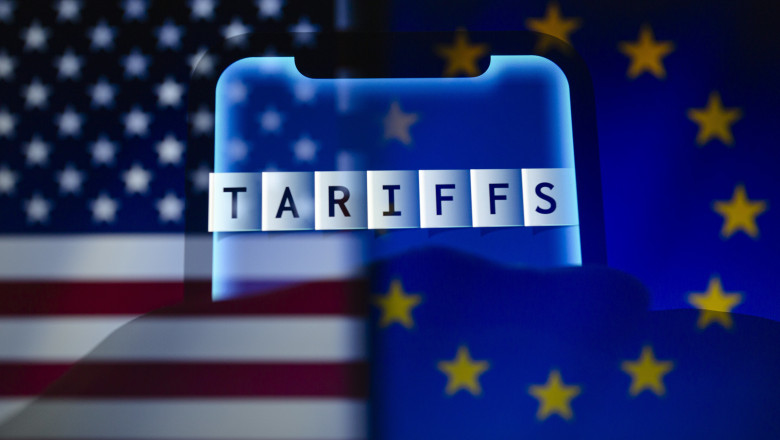The European Commission announced on Wednesday that it has obtained the support of EU countries and has approved a first set of countermeasures to US tariffs on steel and aluminum, which will take effect from April 15th. Thus, the European Union is set to impose additional taxes, mainly at a rate of 25%, on a series of imports from the US, in response to specific US customs duties on metals.
Brussels is still evaluating how to respond to tariffs on cars and more broadly announced by Donald Trump last week, according to News.ro. As a result, the EU can apply retaliatory tariffs of around 22 billion euros on American products such as soybeans, motorcycles, and orange juice. This was announced by the European Commission on Wednesday after the EU bloc countries approved these measures. “The EU considers US tariffs to be unjustified and harmful, causing economic damage to both sides and the global economy. The EU has clearly expressed its preference for finding negotiated solutions with the US that are fair and mutually beneficial,” declared the European Commission. Countering President Donald Trump’s tariffs on steel and aluminum, the European Union’s countermeasures will be implemented in three rounds. Some will take effect next week, others will be implemented in mid-May, and the final round will follow in December, writes POLITICO.
Only Hungary opposed the package of measures, according to four EU diplomats with direct knowledge of the vote, while all other 26 countries voted in favor. “Escalation is not the answer. Such measures will cause additional harm to the economy and European citizens by increasing prices. The only way to go is through negotiations, not retaliation,” said Péter Szijjártó, the Hungarian Minister of Foreign Affairs and Trade, in a post on X. However, 14 EU countries, like Hungary, were supposed to vote against the economic retaliation of the EU bloc, which was highly unlikely given the display of unity in recent weeks. European retaliation does not yet respond to Trump’s imposition of “reciprocal” tariffs of 20% on all EU exports, which came into effect on Wednesday, nor his latest tariff of 25% for cars.
Trump also stated that tariffs on pharmaceutical products will be coming soon. The European Commission is considering presenting its countermeasures on these tariffs as early as next week. “It will certainly be soon. I expect it to be as soon as next week,” said trade spokesman Olof Gill on Tuesday. Trump is calling for the EU to reduce its trade surplus with the US by, for example, purchasing unrealistic amounts of gas or lowering safety standards for cars. While Europe does indeed sell more goods to Americans, the US also enjoys a surplus when it comes to services. Overall, the 1.3 trillion euro trade relationship has a difference of only about 50 billion euros.
This week, President of the European Commission Ursula von der Leyen put forth the idea of eliminating all industrial tariffs – under a “zero-for-zero” agreement – on a reciprocal basis.

